Mohammed himself was a warlord and a slaver (among other deeply unpleasant things); slavery has always been a part of Islam, a method of controlling and striking fear into the infidel or Muslims from different sects and ethnic groups whilst simultaneously serving the Ummah economically.
Slavery was only officially abolished in Saudi Arabia in the 1960s; it is still widely practiced there, and throughout the Muslim world in a variety of forms, which include bride kidnapping and indentured labour. Just recently, the Saudi royal family was found to have trafficked staff working for a pittance in a Brussels hotel.
It comes as little surprise, then, to find that several Muslim countries lead the world in slavery's modern cousin, human trafficking, both as sources and destination countries.
Here is the full report from Israel National News:
Muslim countries in the Middle East and north-central Africa lead the world in human trafficking, according to a new U.S. State Department report. Of the 17 countries that were given the "Tier 3" listing reserved for the worst offenders, nine were Muslim countries or countries with a large Muslim population from these two regions. Tier 3 countries are defined as those “whose governments do not fully comply with the minimum standards" of the Trafficking Victims Protection Reauthorization Act of 2008 and "are not making significant efforts to do so.”There is then a brief description of the case of a young girl trafficked from northern Egypt to serve a wealthy Egyptian couple living in California:The Middle Eastern countries with Tier 3 status are Iran, Kuwait, Saudi Arabia and Syria. The north-central African countries are Mauritania, Chad, Sudan, Niger and Eritrea, all of which have very large Muslim populations.
Algeria, Libya, Tunisia, Egypt, Iraq, Yemen, Bahrain, Qatar, the UAE and Lebanon are on the Tier 2 Watchlist – one step above Tier 3.
Shyima Hall, 19, was photographed for the State Department report in the windowless garage where she was kept for two years. Shyima was 10 when a wealthy Egyptian couple brought her from a poor village in northern Egypt to work in their home in California. She used to wake before dawn and often worked past midnight ironing clothes, mopping the marble floors and dusting the family's crystal. She sometimes worked up to 20 hours a day and earned $45 a month.
The article continues:
The data in the report indicates that Muslim countries in the Middle East and Africa are continuing their centuries-old practice of human trafficking. Historians estimate that between 9 and 14 million black Africans were brought to the Americas in the Atlantic slave trade and between 11 and 18 million black African slaves crossed the Red Sea, Indian Ocean, and Sahara Desert between the Muslim conquests in the 7th century and 1900.
Iran: The report says that “Iran is a source, transit, and destination for men, women, and children trafficked for the purposes of sexual exploitation and involuntary servitude. Iranian women are trafficked internally for the purpose of forced prostitution and forced marriage. Iranian and Afghan children living in Iran are trafficked internally for the purpose of forced marriage, commercial sexual exploitation, and involuntary servitude as beggars or laborers to pay debts, provide income, or support drug addiction of their families. Iranian women and girls are also trafficked to Pakistan, Turkey, Qatar, Kuwait, the United Arab Emirates, Iraq, France, Germany, and the United Kingdom for commercial sexual exploitation.”
The State Department report noted that “the Government of Iran does not fully comply with the minimum standards for the elimination of trafficking, and is not making significant efforts to do so. Lack of access to Iran by U.S. Government officials impedes the collection of information on the country’s human trafficking problem and the government’s efforts to curb it.”
Saudi Arabia, the report says, “is a destination country for men and women trafficked for the purposes of involuntary servitude and, to a lesser extent, commercial sexual exploitation. Men and women from Bangladesh, India, Sri Lanka, Nepal, Pakistan, the Philippines, Indonesia, Sudan, Ethiopia, and many other countries voluntarily travel to Saudi Arabia as domestic servants or other low-skilled laborers, but some subsequently face conditions indicative of involuntary servitude, including restrictions on movement, withholding of passports, threats, physical or sexual abuse, and non-payment of wages.
“Some Saudi men have also used legally contracted ‘temporary marriages’ in countries such as Mauritania, Yemen, and Indonesia as a means by which to sexually exploit migrant workers. Females as young as seven years old are led to believe they are being wed in earnest, but upon arrival in Saudi Arabia subsequently become their husbands’ sexual slaves, are forced into domestic labor and, in some cases, prostitution. The Government of Saudi Arabia does not fully comply with the minimum standards for the elimination of trafficking and is not making discernible efforts to do so.”
Syria is “principally a destination country for women and children trafficked for the purposes of domestic servitude and commercial sexual exploitation. Women from Iraq, Eastern Europe, former Soviet states, Somalia, and Morocco are recruited as cabaret dancers and subsequently forced into prostitution after their employers confiscate their passports and confine them to their work premises. A significant number of women and children in the large Iraqi refugee community in Syria are forced into sexual exploitation by criminal gangs or, in some cases, their families. Some desperate Iraqi families reportedly abandon their girls at the border with the expectation that traffickers on the Syrian side would arrange forged documents for the children and ‘work’ in a nightclub or brothel. Iraqi families arrange for young girls to work in clubs and to be “married,” often multiple times, to men for the sole purpose of prostitution.”
In Kuwait, the majority of trafficking victims are from among the over 500,000 foreign women recruited for domestic service work. “Men and women migrate from Nepal, India, Sri Lanka, the Philippines, Indonesia, Pakistan, and Bangladesh in search of work in the domestic and sanitation industries. Although they migrate willingly to Kuwait, upon arrival some are subjected to conditions of forced labor from their ‘sponsors’ and labor agents, such as withholding of passports, confinement, physical sexual abuse and threats of such abuse or other serious harm, and non-payment of wages with the intent of compelling their continued service.”
“Adult female migrant workers are particularly vulnerable, and consequently are often victims of sexual exploitation and forced prostitution. There have been instances of domestic workers who have fled from their employers, lured by the promise of well-paying service industry jobs, and being coerced into prostitution. In other cases, the terms of employment in Kuwait are wholly different from those agreed to in their home countries. The Government of Kuwait does not fully comply with the minimum standards for the elimination of trafficking and is not making sufficient efforts to do so.”
What Obama did not mention
The report has four tiers altogether: Tier 1, Tier 2, Tier 2 Watchlist and Tier 3. Israel is in Tier 2, the second-best listing. It should be noted, however, that statistics regarding trafficking in Israel are largely provided by powerful organizations inside Israel which have been accused of exaggerating the severity of the situation there for political reasons.
U.S. President Barack Obama, himself a descendant of black Africans, did not mention the subject of Muslim human trafficking in his recent speech to the Arab world in Cairo. He did mention, however, that “for centuries, black people in America suffered the lash of the whip as slaves and the humiliation of segregation,” but did so in the context of talking about Palestinian suffering.
.jpg)



















































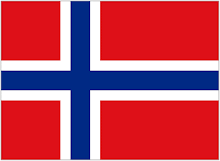
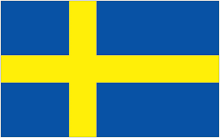






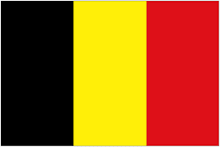

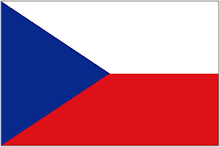











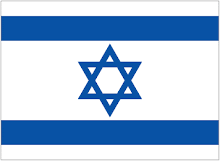




1 comment:
The hypocrisy of non-Western cultures criticising the West over slavery (and the West's self-flagellation on the issue) is breathtaking.
Post a Comment